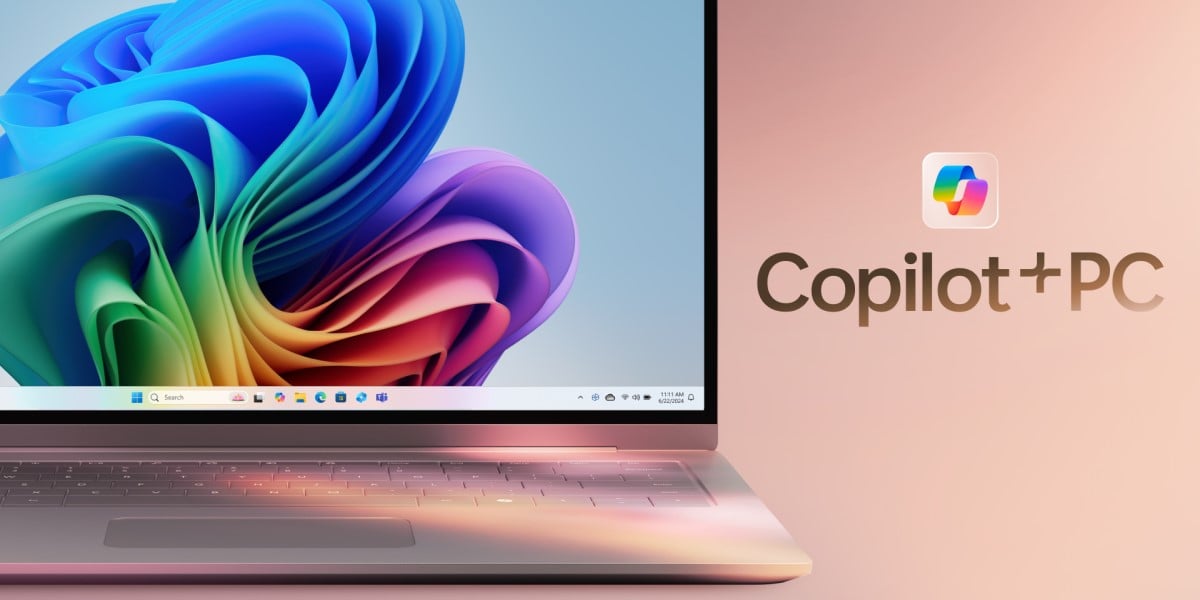There remains little love for notebooks containing AI-capable processors and even less for Microsoft’s Copilot+ models, with premium pricing, software compatibility, and opaque benefits cited as the reasons.
This is according to Context, which tracked sales-out data from distributors showing that 40 percent of laptops sold in Europe in Q4 were AI PCs yet just 5 percent of these were classified under the Copilot+ category.
Win 11 refreshes delayed, say PC makers – and here’s why
READ MORE
“Manufacturers are embedding AI functionality into more devices, making AI PCs an inevitability rather than a choice for many buyers,” said Marie-Christine Pygott, senior analyst at Context. “But this doesn’t mean consumers are actively seeking these features.”
According to Gartner, AI PCs will dominate shipments by 2026, such is the pace at which vendors are phasing out traditional models in their portfolio. With 5-10 percent more margin in AI PCs, there is a commercial imperative to do so.
Demand, however, is weaker than expected. Consumers are hardly lining up to get a piece of the action, says Context, and some businesses see buying an AI PC as risky because there is no AI standard for software to work, as Directions on Microsoft highlighted last year.
The sales numbers for Copilot+ PCs are even more tepid. Since their market debut in the middle of last year, Context says the Windows 11 devices loaded with a neural processing unit (NPU) for AI features have “struggled to gain traction.”
Microsoft’s intention for the initial launch was to pit the machines against Apple Macs “in terms of performance and efficiency,” Pygott told The Register, “and they were launched to play in the same price range as Apple.”
Yet distributor data confirms that Copilot+ PCs were priced 57 percent higher than the average price of a notebook across Europe in the final three months of last year. That’s €1,120 ($1,160) versus €712 ($738) when consumers have less cash in their pockets to spend.
Lest we forget, distributors were offered price protection by PC makers to cut the cost of Copilot+ PCs by 10 percent in Q4 to stimulate more demand.
“Copilot+ is still mainly present in the consumer segment as this was the initial target market. The premium price is a reason for the lower-than-expected uptake, combined with tight consumer budgets,” Pygott said.

Copilot+ PCs software compatibility issues left to you to sort out, with help from crowdsourcers
READ MORE
The “fact that the value is not clear to users” is another limiting factor and Microsoft is now turning its attention to enterprise buyers, imploring thousands of resellers to pitch to customers.
However, Qualcomm’s Snapdragon X SoCs’ have some software compatibility challenges in the business space, says Context. “Commercial adoption is only expected to pick up from now onward as more specific commercial chips have been launched by all three main chip vendors,” said Pygott.
“App compatibility is an issue in the commercial segment. We believe they are doing a lot to address this but it will take time for them to grow share.”
Pygott expects the share of AI-enabled PCs to rise as a proportion of the total market and for demand to increase. “This will take time and is happening a bit more slowly than the industry might have wished for.”
Gartner told us in November that the price of the hardware and a lack of killer applications were inevitably going to limit adoption of AI PCs and something had to give, most likely the price.
“Businesses want to move to AI PCs but not pay a premium as there are no compelling business cases,” said Ranjit Atwal, research director for Gartner’s Quantitative Innovation Team.
Mary-Jo Foley, analyst at Directions on Microsoft, told us the relative lack of AMD and Intel-based AI machines could have “limited growth.” Microsoft signed an agreement to lead with Qualcomm chips based on Arm designs.
“You also could argue that Microsoft and partners still haven’t delivered many (or any) compelling apps/scenarios that require NPUs onboard PCs. Recall is still just in test mode. Unless you want to develop/run LLMs locally on your PC, there just isn’t a real reason to buy one of these.”
She suspects OEMs will “increasingly stack the deck” to make it harder for customers to not buy an AI PC. “Just like they did years ago when touchscreen PCs/laptops became almost impossible to avoid. Not sure whether that will happen first or whether some compelling apps/use cases for NPU-based PCs will materialize.”
We asked a range of the major PC brands for their opinion but they either didn’t respond or weren’t willing to go on the record.
One exec, however, offered a personal view: “I think the pace is quite natural to be honest, app compatibility is not really an issue and there are both Arm and non-Arm versions out there from several brands.
“Businesses are following their usual refresh path and the momentum will naturally pick up, also helped by end of support of W10. Businesses are also implementing AI at a different pace and the adoption is indeed slower than in the consumer space, as history would also show on other innovations.” ®




:quality(85):upscale()/2025/02/04/909/n/1922195/3b6975a967a27d60922910.06588243_.jpg)









